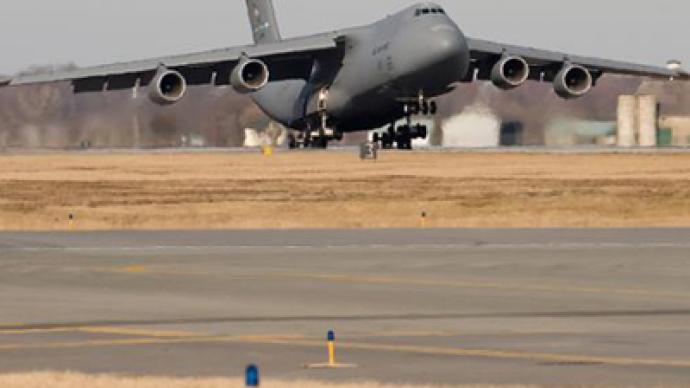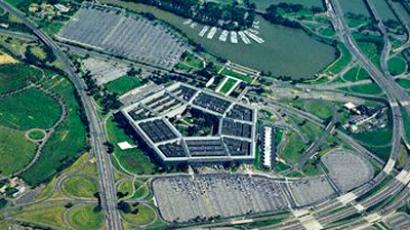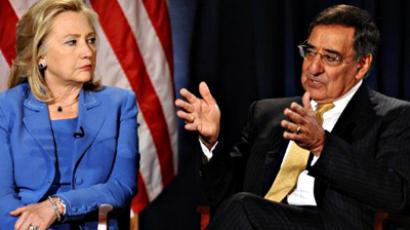Body parts of soldiers lost by Air Force

An investigation at the Dover Air Force Base in Delaware has led to the reprimand of three officials as an internal probe reveals that top-brass at the site lost body parts belonging to slain soldiers killed in battle.
American servicemen killed during the line of duty are regularly flown into Dover to undergo analysis by military mortuary workers, but three of those employed there are now under scrutiny for what is being called “gross mismanagement” in the handling of human remains.Those charges have been brought up following an 18-month investigation carried out by an internal probe within the Air Force. Following complaints from three separate civilian employees of the Dover Port mortuary who took their concerns to the Pentagon, the Military began an investigation of their own last year. On Tuesday, the Office of Special Counsel released to the White House and Congress the results of their own investigation that they carried out separately.With the release of both investigations today, it is revealed that human limbs and other body parts were simply lost by personnel over the years at Dover. According to the Air Force’s Gen. Norton A. Schwartz, the incidents were merely “systematic issues.” For the bereaved, however, they believe the mishandling by the Military of their loved ones is more than just a little problem and Carolyn N Lerner, head of the Special Counsel’s Office that penned the second report, says that the Air Force’s findings “do not appear reasonable.”In the formal report from the Air Force, one unnamed mortuary employee says that the loss of body parts was something that occurred around “every two years” at the Dover base. In response to accumulating incidents, the staffer adds in the report that the Air Force named a panel to consider how to better handle the incidents, but that suggestion has come as too little too late for those impacted by the loss of remains.“In these instances the report demonstrates a pattern of the Air Force’s failure to acknowledge culpability for wrongdoing relating to the treatment of remains of service members and their dependents,” Lerner writes in the Counsel’s report. She adds that while the Air Force did indeed conduct an investigation of the wrongdoings occurring within their own ranks, they never accept accountability for their actions.A day before the investigations were revealed today, General Schwartz told members of the press, “We and every employee of the Dover Port Mortuary understand the obligations of this work, the sanctity of this work, the necessity, the need for reverence, the need for dignity and respect for our fallen, just as if these were our sons and our daughters.”Schwartz added that he thought the personnel involved in the incidents did the best they could to deal with the mismanagement of body parts. The families of two known victims — both 2009 casualties from the war in Afghanistan — were informed over the weekend that the deceased were involved in the episodes. In either case, an ankle bone and chunk of flesh were lost by members of the mortuary.One unnamed employee in the report reveals that “it was kind of hard to keep track of everything” in the mortuary, and noted that medical examiners were regularly “messing” with the Ziploc bags that contained various body parts.“They would walk to the back, and then they’d come back and — it was — it was a really hectic day,” adds the staffer.In all, 14 sets of allegations of mismanagement were reviewed in the Air Force investigation, including once incident where a fallen Marine’s arm bone was sawed off so that the soldier could be fit into his casket. Mortuary workers removed the bone and stuck it in the Marine’s pants without telling the family. The Air Force’s investigation suggests that while top-brass should have been made aware of the decision, it does not at any point condone their behavior.Of the three leading Air Force officials found at fault in the investigations, none were terminated from the Military. Instead, rather, Col. Robert H. Edmondson was relocated to the Pentagon to take on a staff job and two other members of the mortuary staff were reassigned to lesser positions.Dover serves as the largest military mortuary within the Department of Defense and has been the site of analysis of the dead dating back to 1955. In addition to those killed during combat, victims of the 1978 Jonestown mass-suicide and the September 11 terrorist attacks have also been flown to Dover to undergo identification procedures.














